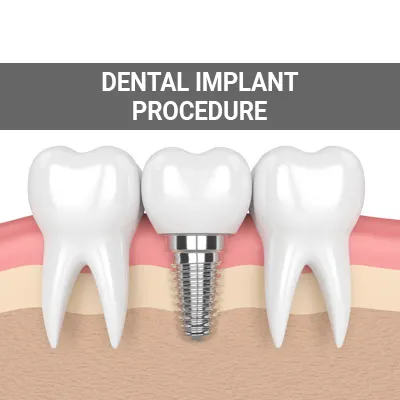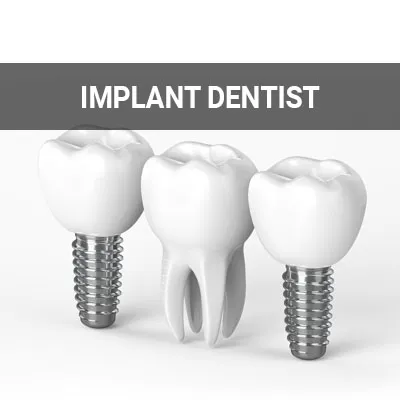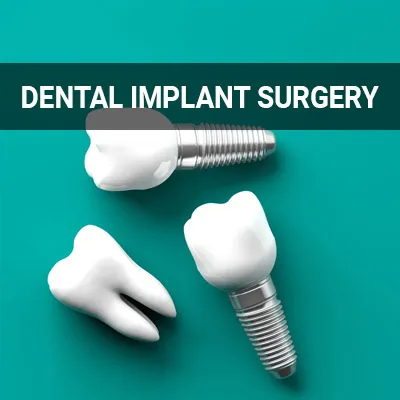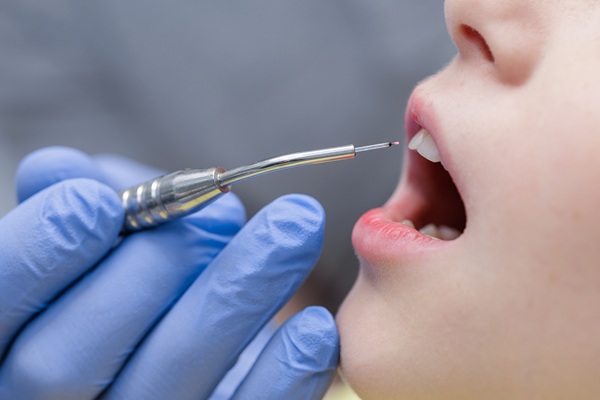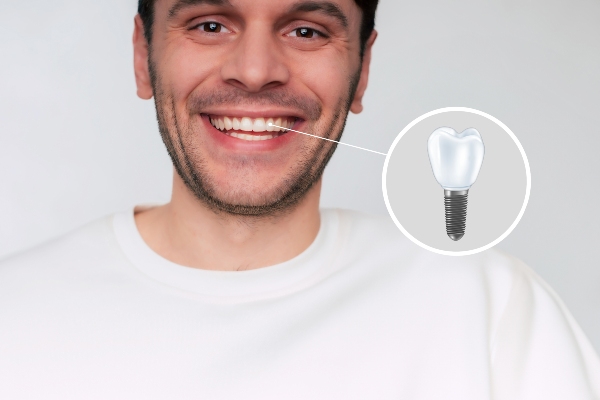Post-Op Care for Dental Implants Cumming, GA
Our guidance can help patients throughout the post-operative care period for dental implants. In most cases, the process is not nearly as complicated as people believe. By following our instructions, we can help patients avoid the risk of infection or irritating the infected area.
Here at our Cumming office, we help our dental implant patients through the recovery process, ensuring they make a full and quick recovery. We can also go over proper oral hygiene to keep dental implants in proper condition. To learn more about dental implants and post-operative care, call us at (770) 889-7867 today and schedule an appointment with North Georgia Smiles.
An Overview or Post-Op Care for Dental Implants
The length of recovery time for dental implants will vary per patient. In most cases, it will not take nearly as long as people assume. With good oral hygiene and specific dietary restrictions, patients can count on an efficient and comfortable recovery. Our team can suggest soft foods patients can eat to lessen the chance of irritation in the area surrounding the implant. Patients should ask about oral health techniques to apply to avoid inflaming the site as well.
We can help explain the initial and long-term recovery process, so most patients know what to expect following implant placement. Although every patient has a different experience, there are certain side effects to expect and precautions to take during post-operative care. According to Medical News Today, infection, gum recession, and a loose implant are more common problems that can develop after dental implant surgery. Patients should inform our team of any medications they are taking or chronic conditions that might affect recovery.
“With good oral hygiene and specific dietary restrictions, patients can count on an efficient and comfortable recovery.”
The Recovery Process
The recovery process happens in stages, and many can make a full recovery in as little as four weeks. The patient may need to take several days off from work and physical activity during post-operative care, while the swelling and discomfort are at their worst. Most return to eating normally within two weeks, which is about the same time swelling, bleeding, and overall discomfort should start to go away.
There is little discomfort associated with dental implants, but the side effects may vary slightly for each patient. However, there are certain side effects patients can expect during post-operative care. Several of the more prominent and notable side effects include:
- Pain and swelling: The dentist will provide ways to minimize discomfort, but there will be some pain and gum swelling for the first few weeks of post-op care.
- Minor bleeding: While it is possible to keep bleeding at a tolerable level by avoiding irritation of the implant site, some occasional minor bleeding may occur.
- Difficulty chewing: Dietary restrictions (see below) are necessary for the first few post-op care weeks.
- Restricted movement: Swelling and discomfort often restrict jaw movement during the recovery process.
Most side effects are minor and go away within the first few weeks of post-op care. Talk to your dentist if more severe side effects develop.
“The recovery process happens in stages, and many can make a full recovery in as little as four weeks.”
Post-op Follow-up Appointments
Your dentist should schedule one or more follow-up appointments after the day of surgery. You must attend all of these appointments. The number of appointments and the type of aftercare applied will depend on the treatment plan agreed upon by you and your provider.
Dental implants must be checked on regularly because there are so many elements to monitor. First, the dentist must check to ensure the implant is attaching to the jawbone properly and that there is no inflammation or signs of infection. Also, there is a slightly higher risk of gum disease in those with dental implants, leading to implant failure, among other problems. Your dentist will want to catch it early to prevent it from becoming a more serious issue.
“Dental implants must be checked or regularly because there are so many elements to monitor.”
Check out what others are saying about our dental services on Yelp: Post-Op Care for Dental Implants in Cumming, GA
Things That May Hinder Your Recovery
Just as there are things that can help expedite the healing process, there are also things that may hinder a patient's recovery. There are certain things to avoid during the recovery process, including smoking, excessive rinsing, intense exercise, hard or hot foods, and drinking with a straw.
Smoking impedes the process of osseointegration, which helps the jawbone develop and grow around the dental implants. It also slows the general healing process. Excessive, vigorous rinsing can disturb the implant site. Make sure to rest for two to three days after surgery, avoiding any exercise. Finally, the suction involved in using a straw can potentially dislodge the blood clot that forms over the implant site.
“There are certain things to avoid during the recovery process, including smoking, excessive rinsing, intense exercise, hard or hot foods, and drinking with a straw.”
Questions Answered on This Page
Q. What questions should a patient ask about the post-op process?
Q. What will post-surgery side effects can patients expect?
Q. How many follow-up appointments will you need post-op?
Q. What types of foods and activities should be avoided during the recovery process?
People Also Ask
Q. What are the benefits of dental implants?
Q. How long does the implant procedure take?
Q. When should people seek an implant dentist?
Q. What do I do if my implant feels loose?
Q. What happens during the initial consultation?
Q. What can patients do to reduce their anxiety about receiving a dental implant?
Lifestyle Changes
The recovery process typically involves several weeks of dietary restrictions, lifestyle, and oral hygiene changes.
Dietary Restrictions
The dentist provides the patient with specific instructions on foods and drinks to avoid during recovery. Nothing the patient consumes should be extremely hot or cold. Keep in mind that oral infection risk is higher after implant placement, so limiting foods and beverages high in sugar is essential. Foods that are easy to chew can include oatmeal, eggs, soup, and mash potatoes. Drinking water throughout the day is helpful as well.
Lifestyle Changes
It is natural to experience discomfort for the first few weeks of post-op care. Some patients may prefer to take a day or two off work while they recover. Most importantly, avoid activities that may result in a blow to the face (sports, weight lifting, outdoor activities) during the recovery process.
Oral Hygiene Routine
As mentioned, the risk of infection is higher during recovery, so a proper oral hygiene routine is essential. Be certain to brush gently several times a day and use mouthwash regularly, along with any other specific recommendations provided by the dentist. Resources such as WebMD's Oral Care Guide may provide useful information as well.
“Keep in mind that oral infection risk is higher after implant placement, so limiting foods and beverages high in sugar is essential.”
Frequently Asked Questions
Q. When will it be safe for me to return to work after my dental implant procedure?
A. You can expect any swelling and soreness to last for three to five days; therefore, it is advisable to undergo surgery towards the week's end, so you can take a work break to recover. Generally, if you had the procedure on a Thursday, you can expect to return to work by Tuesday.
Q. Is there anything that can hinder the post-op recovery process?
A. Patients with uncontrolled diabetes may have complications with recovery. Patients who smoke may also be at increased risk of infection and hindered healing. Talk to your dentist about any preexisting conditions that may affect recovery.
Q. What is post-operative care like after getting the final tooth?
A. The invasive part of the procedure occurs during implant placement. Once the jaw heals around the implant, attaching the final tooth is a lot easier. Aside from some minor gum sensitivity, which can be managed with ibuprofen, there is no significant recovery process.
Q. How can I avoid infection after my dental implants procedure?
A. Keep your mouth clean whenever possible, beginning the day after surgery. Brush with a soft-bristled toothbrush and fluoridated toothpaste after meals and before bedtime. Stop any bleeding by applying gauze to the treatment area. Finally, do not rinse your mouth directly after surgery.
Dental Implant Terminology
Call Us Today
We enjoy helping our dental implant patients through every treatment stage, from the initial consultation to post-operative care. Call us at 770-889-7867 today to schedule a visit with us and learn more about the treatment and post-operative care process for dental implants.
Helpful Related Links
- American Dental Association (ADA). Glossary of Dental Clinical Terms. 2025
- American Academy of Cosmetic Dentistry® (AACD). Home Page. 2025
- WebMD. WebMD’s Oral Care Guide. 2025
About our business and website security
- North Georgia Smiles was established in 2005.
- We accept the following payment methods: American Express, Cash, Check, Discover, MasterCard, and Visa
- We serve patients from the following counties: Forsyth
- We serve patients from the following cities: Cumming, Alpharetta, Jones Creek, Suwanee, Milton, and Dawsonville
- National Provider Identifier Database (1326050824). View NPI Registry Information
- Norton Safe Web. View Details
- Trend Micro Site Safety Center. View Details
Back to top of Post-Op Care for Dental Implants



